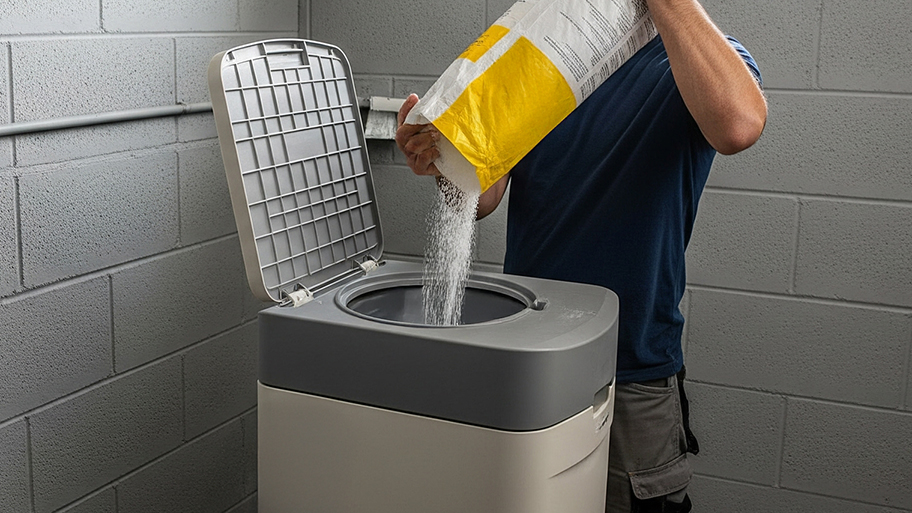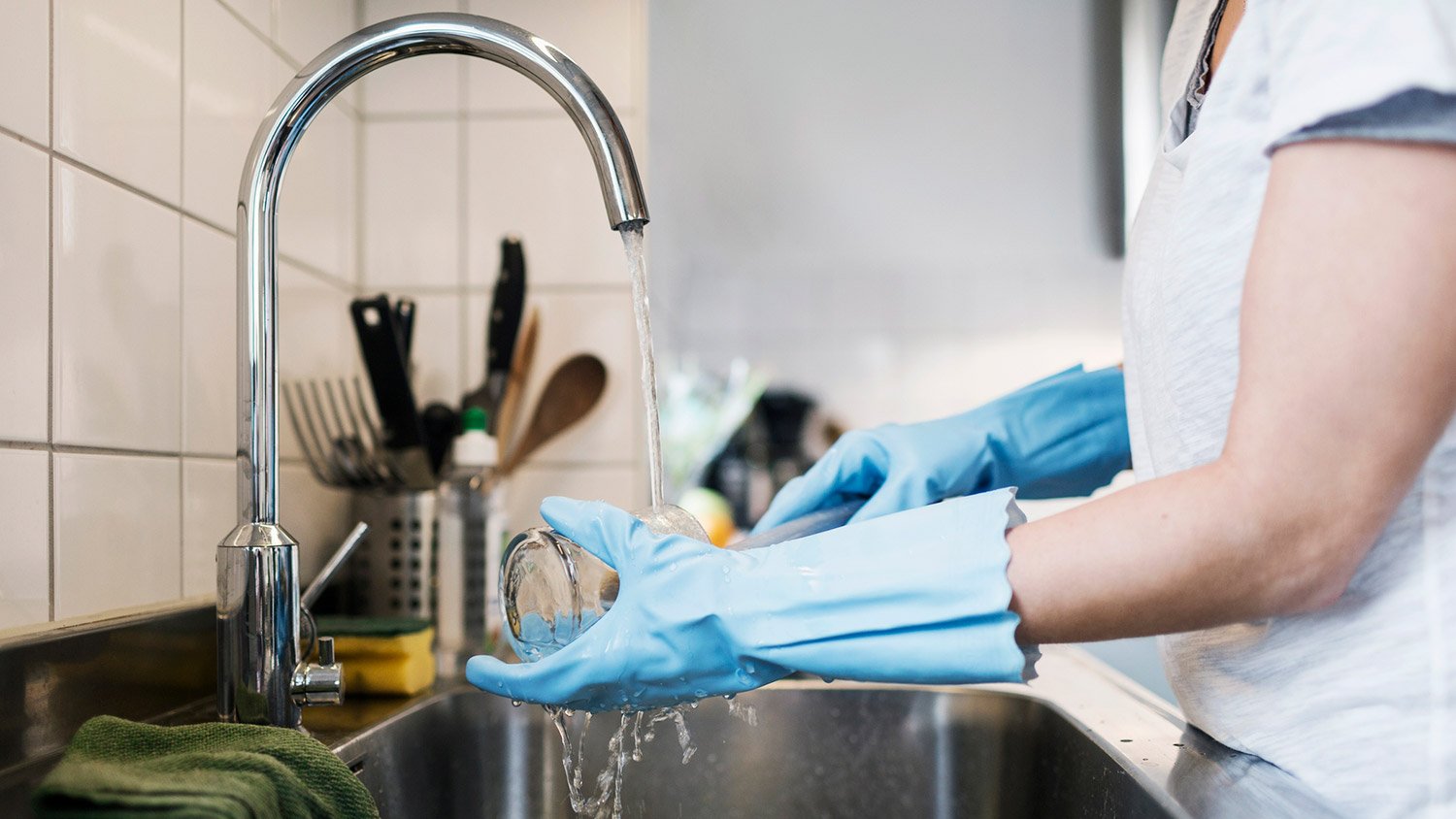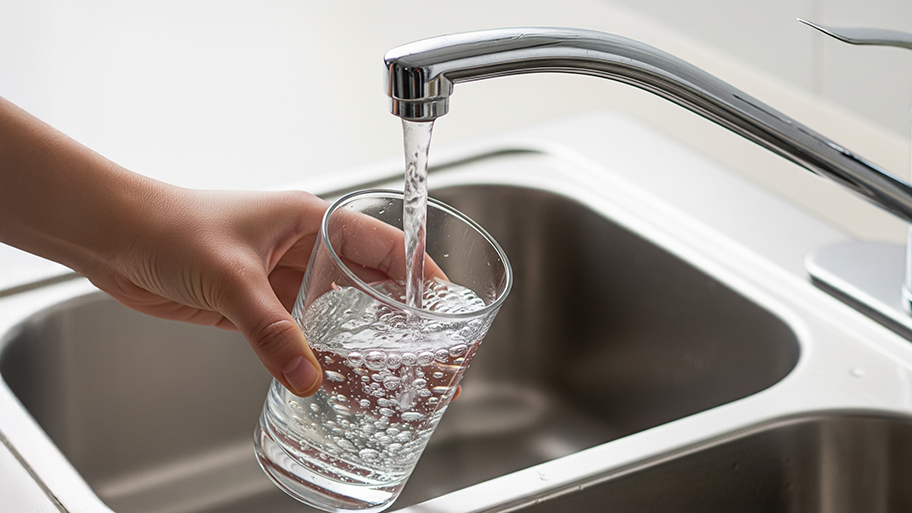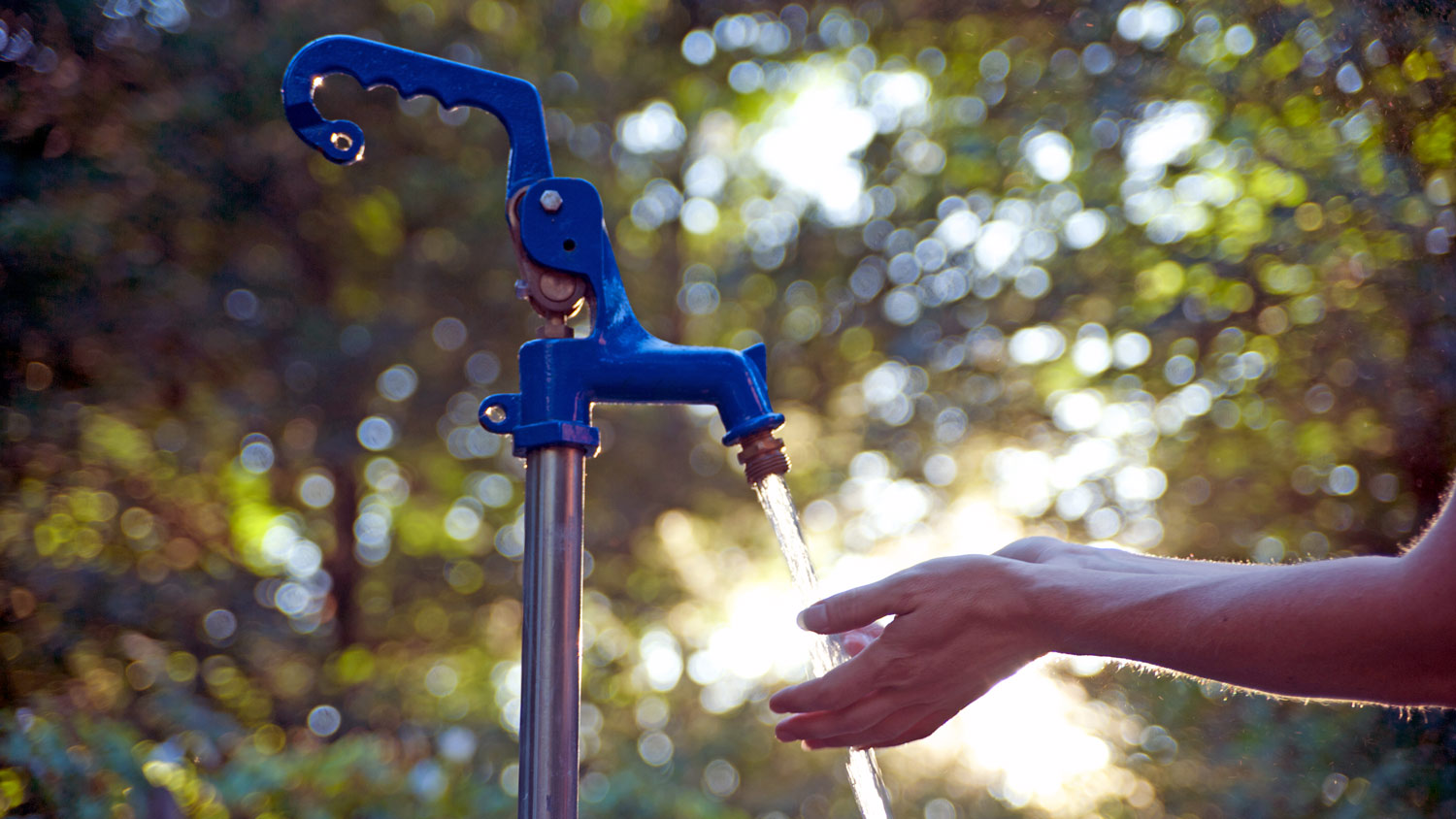
How much a water softener costs depends on your home’s size, and the system’s type and capacity. Our expert guide explores all the price factors.
Keep your water clean and safe


Sediment in water can come from decomposing plants and animals, and soil erosion.
Signs of sediment in water include a foul smell, bad taste, and gritty texture.
Problems with your water softener, water heater or faucet may cause sediment.
A plumbing professional can install a whole-house water filter to keep sediment out.
There’s nothing quite like a cold, refreshing glass of water—until you experience the gritty, unpleasant taste of sediment. Finding sediment in your water supply typically points towards an issue with one of the water sources coming into your home. It could also be from damaged pipes.
Here are five reasons why you’re finding sediment in the water—and who you can call to deal with the issue ASAP.
People will often install a water softener in part to catch the large particles that can appear in a city’s water system. If this system fails, you may see small black or white particles coming through your faucets and toilets.
To ensure that the problem doesn’t arise again, contact a local water softener installation company to replace your existing one. You’ll likely need to filter the water in the meantime, and it’s best to only wash clothes if you need them.
Finding rust, minerals, or bacteria only in your hot water is typically a sign that your water heater is about to fail, or it is damaged. To determine if the culprit is your water heater, turn on your cold water, and let it run through roughly five gallons of water. If the problem doesn’t continue, switch back to the hot water and see if the problem reoccurs.
If it does happen again, it’s best to replace your water heater. You can try to drain and flush the water heater to see if the problem continues, but it’s likely only going to be a temporary solution. Before buying a new water heater, hire a local water heater repair service to see if they can fix the problem.
If you’re running off of well or spring water on your property, then you want to ensure that neither has suddenly become polluted or filled with sediment. Sediment in well or spring water can happen from erosion, natural disasters, or pollution seeping in. You’ll want to hire a local well pump repair service for this job, as it’s going to require quite a bit of digging to diagnose the problem.
You may only find sediment in the toilet. In this case, if you’ve eliminated all of the above possibilities, it could be your toilet causing the sediment. Over time, constant use of the flapper in your toilet can erode it and cause sediment to appear in the tank water, as well as the toilet bowl.
Thankfully, this is an easy fix and simply means replacing the toilet flapper itself. This is a job you can tackle in about 10 minutes, so long as you have a pair of heavy-duty scissors on hand. If not, you can always call in a local plumber to tackle the job.

If the particles in the water are more green than black, you might be dealing with bacteria or mold growth on the faucet itself. These microbes love moist areas to grow, and with the faucet being a direct water line, it’s not terribly uncommon to have this problem. In fact, one of the most common areas where you’ll find this type of sediment is on your shower head.
For best results, you’ll want to soak the faucet using a combination of white vinegar in a plastic baggie and tie it to the faucet overnight. If it’s a serious problem, you may need to bust out the bleach to tackle the job. First, make a solutionby mixing one tablespoon of bleach with one gallon of water. Then, wipe down your faucet, and rinse it clean with cold water.
From average costs to expert advice, get all the answers you need to get your job done.

How much a water softener costs depends on your home’s size, and the system’s type and capacity. Our expert guide explores all the price factors.

On average, a reverse osmosis water filter costs around $2,200, but there are a few variables that impact the total price. Learn about them in this guide.

Discover how much well water treatment systems cost, including installation, maintenance, and tips to save. Get expert insights to plan your water system project.

What is a water filter and why do you need one? Here’s how they work and how to choose the best water filtration system for your home.

A water purifier removes contaminants but is often used at the municipal level. Learn why a water filter is better for home water purification.

There are many pros and cons of salt-free water softeners that could impact your decision to buy one. Stay tuned to learn more about salt-free water softeners.